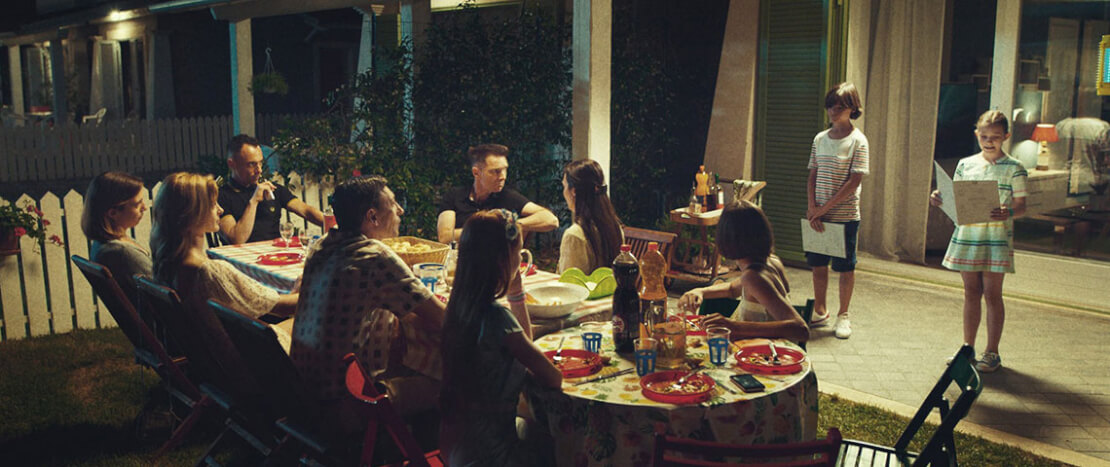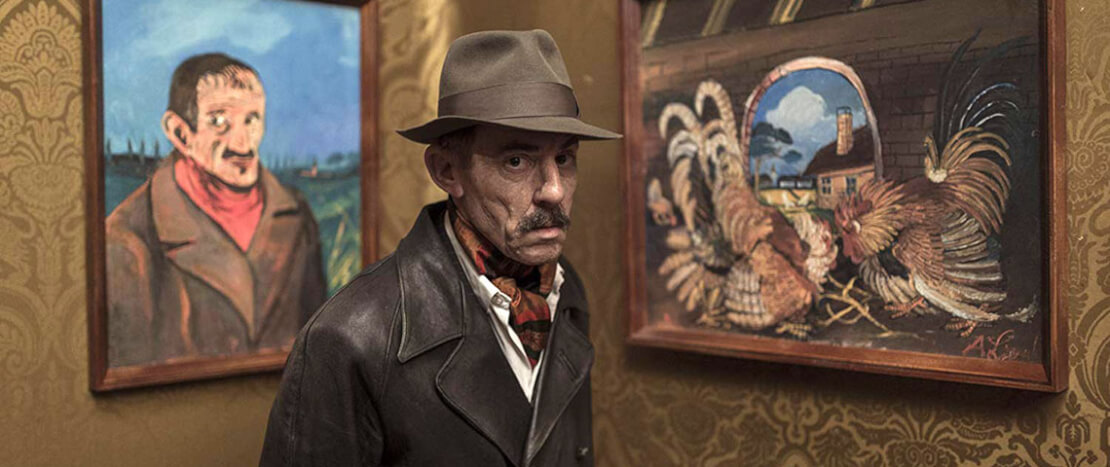Favolacce / Bad Tales
Discovering a partially written girl’s diary, the narrator of ‘Favolacce / Bad Tales’ decides to complete her tale as he see fit. Opening on a sultry suburb of Rome, life is worn on a rolled-up sleeve for all to see. Chronically insecure and out of work, Bruno Placido (Elio Germano) is anything but placid. Alternating between screaming at his children and sobbing into the lap of his wife Dalila (Barbara Chichiarelli), she endorses his rages. On the receiving end of this and other excessive displays of emotion are Bruno’s son Dennis (Tommaso Di Cola), daughter Alessia (Giulietta Rebeggiani) and two school kids, sickly Geremia (Justin Korovkin) and emotionally-bruised Viola (Giulia Melillo). Yet, in a choking display of rejection, the children will find the response they need in the lessons of Professor Bernardini (Lino Musella).
…a deliciously disturbing suburban drama of childhoods held to cultural ransom.
Part rites of passage, part savage dissection of toxic masculinity, directors Fabio & Damiano D’Innocenzo’s ‘Favolacce / Bad Tales’, pulls very few punches from the outset. Seen initially from Dennis’s point of view, his confusing adolescence is served to him on the scorchingly hot/cold antics of his father and the lactated fascinations of a local girl-around-town as played by Ileana Stimmatini D’Ambra.
Moving on to cover the overbearing affections of Geremia’s dad (Gabriel Montesi), it becomes increasingly clear that the men in ‘Favolacce / Bad Tales’ do not know how to channel their emotions. Nowhere is this seen plainer than when Bruno and his neighbour Pietro (Max Malatesta) goad each on with fantasies of raping a guest at a barbecue. With their childhoods always curtailed around the selfish and predominantly male insecurities of their parents, the children look for an extreme way out.
With an occasional saxophone score that squeals like a stuck hyena, ‘Favolacce / Bad Tales’ firmly nails the toxicity of shame, pride and rage that makes up its characters’ sense of machismo. Pulling apart the pressures around having sex, proving your masculinity and being regarded as appropriate to a distorted ideal, Fabio & Damiano D’Innocenzo offer two finales in the second film with one unlocking addendum. All stranded together in the somewhat lately introduced sub-plot of disaffected Professor Bernardini (Lino Musella), this is a film whose ending will stay you as much as its distracting arrival.
With a near-closing shot that perfectly scoops out the soft underbelly of Bruno’s self-perception, he cowardly leaves it to his wife to do the real emotional heavy-lifting. That said, the domino-falling realisations that fall afterwards still feel merited with the movie’s final pay-off that was foreshadowed in the beginning.
Hot, sweaty and un-compromisingly bleak except for the few shards of believable light that the D’Innocenzo brothers let in, ‘Favolacce / Bad Tales’ is a deliciously disturbing suburban drama of childhoods held to cultural ransom.
See it to set them free.










